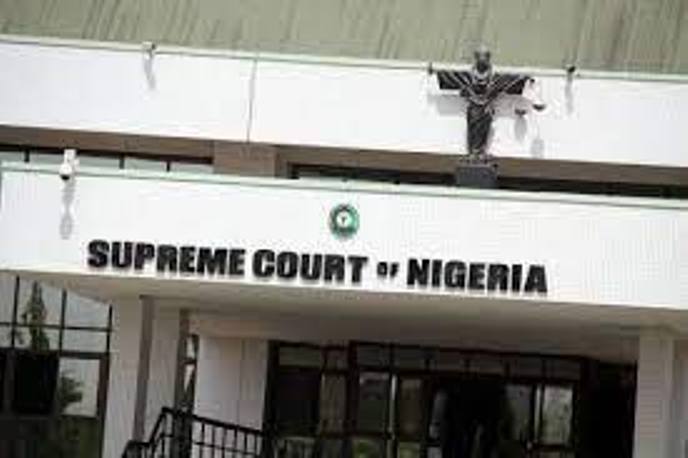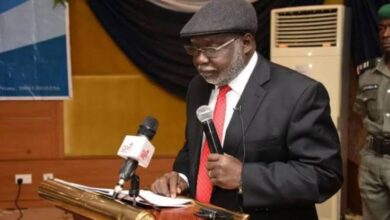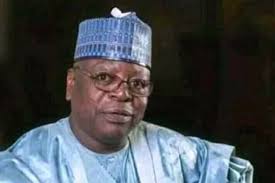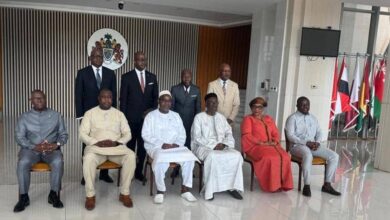
Seven Nigerian state governors from the opposition party, the People’s Democratic Party (PDP), have filed a lawsuit against President Bola Tinubu at the Supreme Court, challenging his suspension of Rivers State’s elected officials under an emergency rule imposed on the oil-rich state.
The states, represented by their respective attorneys general, argue that the president “has no powers whatsoever” to suspend a democratically elected governor and deputy governor under the guise of a state of emergency.
They are urging the court to declare the action unconstitutional.
The plaintiffs contended that the constitutional provisions cited by President Tinubu do not empower him to dissolve a democratically elected House of Assembly.
They seek a Supreme Court ruling declaring the suspension of Governor Siminalayi Fubara, Deputy Governor Ngozi Odu, and members of the Rivers State House of Assembly as illegal and in gross violation of the Nigerian Constitution.
Background to the Emergency Rule
On March 18, President Tinubu declared a state of emergency in Rivers State, citing “disturbing” incidents such as explosions and vandalization of petroleum pipelines linked to the state’s ongoing political crisis.
The crisis stems from a rift between Governor Fubara and his predecessor, Nyesom Wike, the current Minister of the Federal Capital Territory.
Following the emergency declaration, the president suspended Governor Fubara, his deputy, and all House of Assembly members for an initial six months.
He appointed Ibok-Ete Ibas as the state’s sole administrator.
The House of Representatives approved the state of emergency on March 20, with the Senate later following suit, albeit with minor amendments.
Seven states—Adamawa, Bauchi, Zamfara, Plateau, Bayelsa, Enugu, and Osun—have now petitioned the Supreme Court to overturn the suspension of Rivers State’s elected officials.
Notably, these states represent all six geopolitical zones of Nigeria, a significant factor in the nation’s often religion- and ethnicity-driven political landscape.
Despite PDP controlling 12 states, only seven have joined the suit, while Oyo, Akwa Ibom, Delta, and Taraba did not participate.
The plaintiffs have also named the National Assembly as a co-defendant alongside President Tinubu.
They argue that the emergency proclamation does not meet the constitutional requirements under Section 305 of the Nigerian Constitution.
According to them, President Tinubu’s proclamation lacked the necessary conditions and procedures mandated by law and was issued for reasons beyond the scope of constitutional provisions.
Additionally, they challenge the National Assembly’s approval of the emergency rule through a voice vote, stating that the Constitution requires a mandatory two-thirds majority vote in both legislative chambers.
The plaintiffs are asking the Supreme Court to:
Nullify the state of emergency proclamation in Rivers State and the approval given by the National Assembly.
Declare the appointment of a Sole Administrator for Rivers State as unconstitutional.
Set aside the emergency rule approval, arguing that it did not meet constitutional voting requirements.
Issue an order restraining the defendants from implementing the suspension of Rivers State’s governor and deputy governor.
Prohibit any interference with the constitutional and electoral mandates of the Rivers State leadership.
Restrain the federal government from suspending or interfering with any governor, particularly opposition governors, in the future.
This lawsuit marks a significant legal confrontation between the opposition-led states and the ruling government over constitutional powers and the sanctity of democratic governance in Nigeria.







